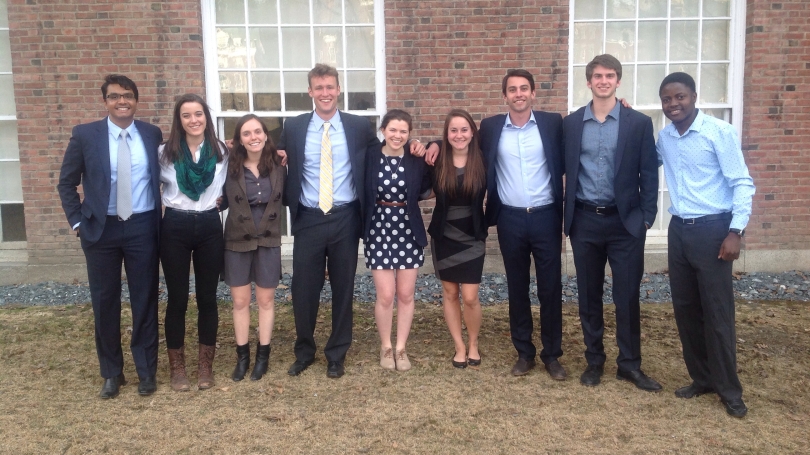The Benjamin F. Barge and Class of 1866 Prizes for Oratory are Dartmouth traditions reaching back to the earliest days of the 20th century. For over 100 years, Dartmouth students have competed for these coveted awards, which honor excellence in oratory and rhetoric.
The Benjamin F. Barge Prize was established in 1901 to honor the Dartmouth senior who is determined by a panel of expert judges to "write and pronounce in public an English oration in the best manner." The Class of 1866 Prize, established in 1905, awards "excellence in original oration" to one junior and one sophomore student. The prizes are awarded each year after an evening of spirited oration, where a handful of select students compete to give the most persuasive and best-delivered speech.
Speech professor and contest organizer Josh Compton believes that this event is an important tradition for the College. "Even in a contest setting, speech can be a reflection of dialogue, of the collaborative processes between speaker and listener, of working together to figure out challenging situations, of trying to answer difficult questions, or trying to question difficult answers," he notes.
Indeed, many of this year's speeches examined timely and difficult issues including public health, warfare, unemployment, and the problems girls face pursuing an education in many parts of the world. These speeches were all examples of rhetoric at its best--what Compton calls "the power of words to change minds, to enact change, to work toward justice, to change the world.
Although this year's cohort of students each produced a powerful work of rhetoric, the judges singled out three for special recognition. The 2015 Benjamin Barge Prize went to senior Kimberly Strauch for her speech entitled "Vaccination: Our Best Shot Against Measles," a rebuttal to challenges to the safety of measles vaccination and a call for better vaccination rates. The judges awarded junior Evan Read one of the Class of 1866 prizes for his speech, "Red Light, Green Light, What Light?," a thoughtful examination of the difficulties colorblind persons encounter with traffic signals. The second Class of 1866 prize was awarded to sophomore Titus Kabega for his speech, "Reclaiming the Narrative of Africa," an argument to resist oversimplification and instead achieve a more nuanced understanding and appreciation of Africa.
Congratulations to all of the contestants and prize winners this year.
